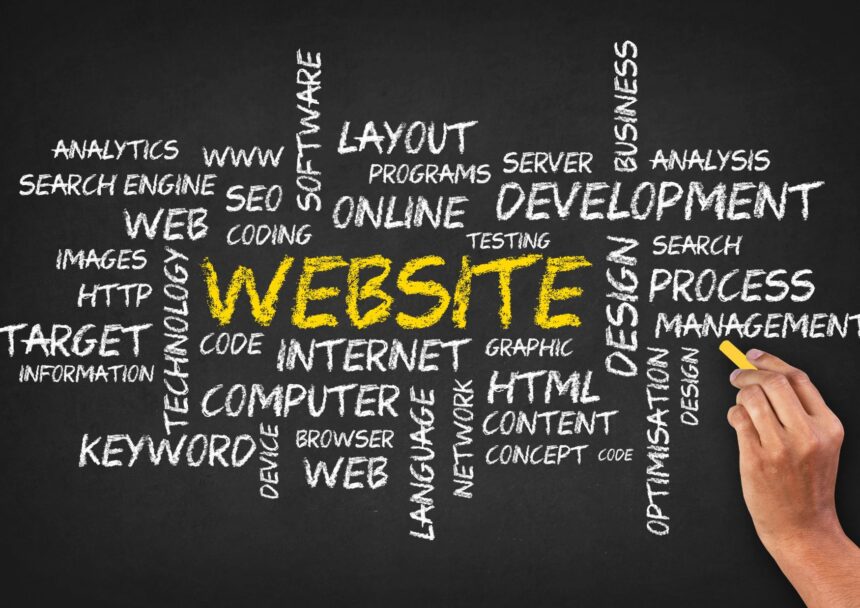Introduction
In today’s digital age, having a website is essential for any individual, business, or organization looking to establish an online presence. With a plethora of website-building platforms available, it can be overwhelming to decide which one to choose. This blog post will guide you through the top platforms for creating a stunning website, their unique features, and how to select the perfect one for your needs. We’ll also provide valuable tips and resources to help you get started on your website-building journey.
WordPress
WordPress is a popular content management system (CMS) that powers over 40% of all websites on the internet. It offers a versatile platform for both beginners and experienced users, with thousands of themes and plugins to customize your website’s appearance and functionality.
Key Features
- User-friendly: WordPress is easy to use, with a simple dashboard that allows you to manage your website’s content, design, and settings.
- Flexibility: Choose from thousands of free and premium themes to create any type of website, from a personal blog to an e-commerce store.
- Extendable: Enhance your website with over 58,000 plugins that add features like contact forms, SEO tools, and social media integration.
- Large community: As the most popular CMS, WordPress has an extensive support community, including forums, tutorials, and documentation.
Wix
Wix is a user-friendly website builder that offers a simple drag-and-drop interface, making it easy for beginners to create and customize their website without any coding knowledge.
Key Features
- Drag-and-drop editor: Easily create a website by dragging and dropping elements onto the page, such as text, images, and videos.
- Templates: Choose from over 500 professionally designed templates that are fully customizable to match your brand and style.
- Wix ADI: Wix’s Artificial Design Intelligence (ADI) can create a personalized website for you in minutes, based on your answers to a few questions.
- App Market: Add extra functionality to your website with Wix’s App Market, featuring apps for forms, galleries, e-commerce, and more.
Squarespace
Squarespace is a stylish and intuitive website builder that offers beautifully designed templates and an easy-to-use interface, perfect for creatives and small business owners.
Key Features
- Award-winning templates: Squarespace offers a collection of stunning, responsive templates designed for various industries and purposes.
- Style editor: Customize your website’s colors, fonts, and layout with the user-friendly style editor.
- E-commerce capabilities: Create an online store with Squarespace’s integrated e-commerce tools, including inventory management, order processing, and secure payments.
- SEO features: Squarespace includes built-in SEO tools to help your website rank higher in search engine results.
Weebly
Weebly is a beginner-friendly website builder with a simple drag-and-drop interface and a wide range of features, making it an excellent choice for small businesses and personal projects.
Key Features
- Drag-and-drop builder: Create your website with ease using Weebly’s intuitive drag-and-drop editor.
- Responsive templates: Select from a variety of responsive, customizable templates to suit your website’s purpose and style.
- E-commerce integration: Set up an online store with Weebly’s e-commerce features, including product listings, shopping carts, and payment processing.
- App Center: Expand your website’s functionality with Weebly’s App Center, offering a range of third-party apps and integrations.
Shopify
Shopify is a dedicated e-commerce platform that provides everything you need to create, manage, and grow your online store. With a focus on e-commerce, Shopify offers a range of features and tools to help you sell products and streamline your business operations.
Key Features
- E-commerce focused: Shopify is designed specifically for online stores, offering a range of features such as product listings, inventory management, and secure payments.
- Customizable themes: Choose from over 100 professionally designed themes, all of which are mobile-responsive and customizable to match your brand.
- App Store: Enhance your store’s functionality with the Shopify App Store, which offers over 6,000 apps for marketing, sales, customer service, and more.
- 24/7 support: Receive help whenever you need it with Shopify’s 24/7 customer support via phone, email, or live chat.
How to Choose the Right Platform for Your Needs
As an honest digital adviser, we recommend the following steps to make the right choice:
- Assess your needs: Determine the purpose of your website and the features you require. Consider factors like e-commerce, blogging, or multimedia capabilities.
- Evaluate your skill level: Choose a platform that aligns with your technical expertise. If you’re a beginner, opt for a user-friendly website builder with a drag-and-drop interface. More advanced users may prefer the flexibility of a CMS like WordPress.
- Compare platforms: Research the top platforms mentioned in this blog post, comparing features, pricing, and available resources.
- Test the platform: Most website builders offer a free trial or a limited free plan, allowing you to test their interface and features before committing.
By following these steps and considering the options presented in this blog post, you’ll be well on your way to creating a beautiful, functional website that meets your unique needs and helps you achieve your online goals. Happy website building!







